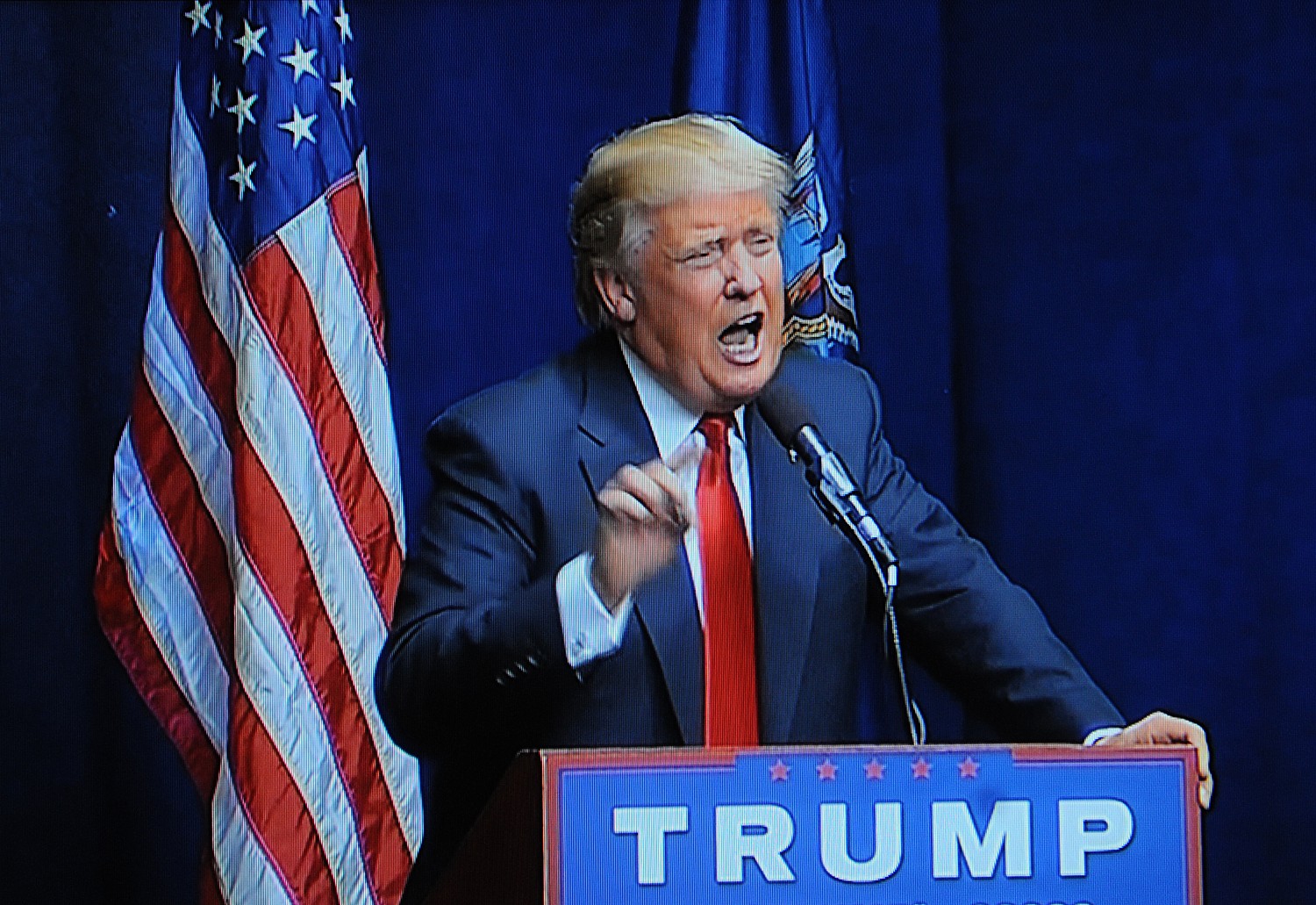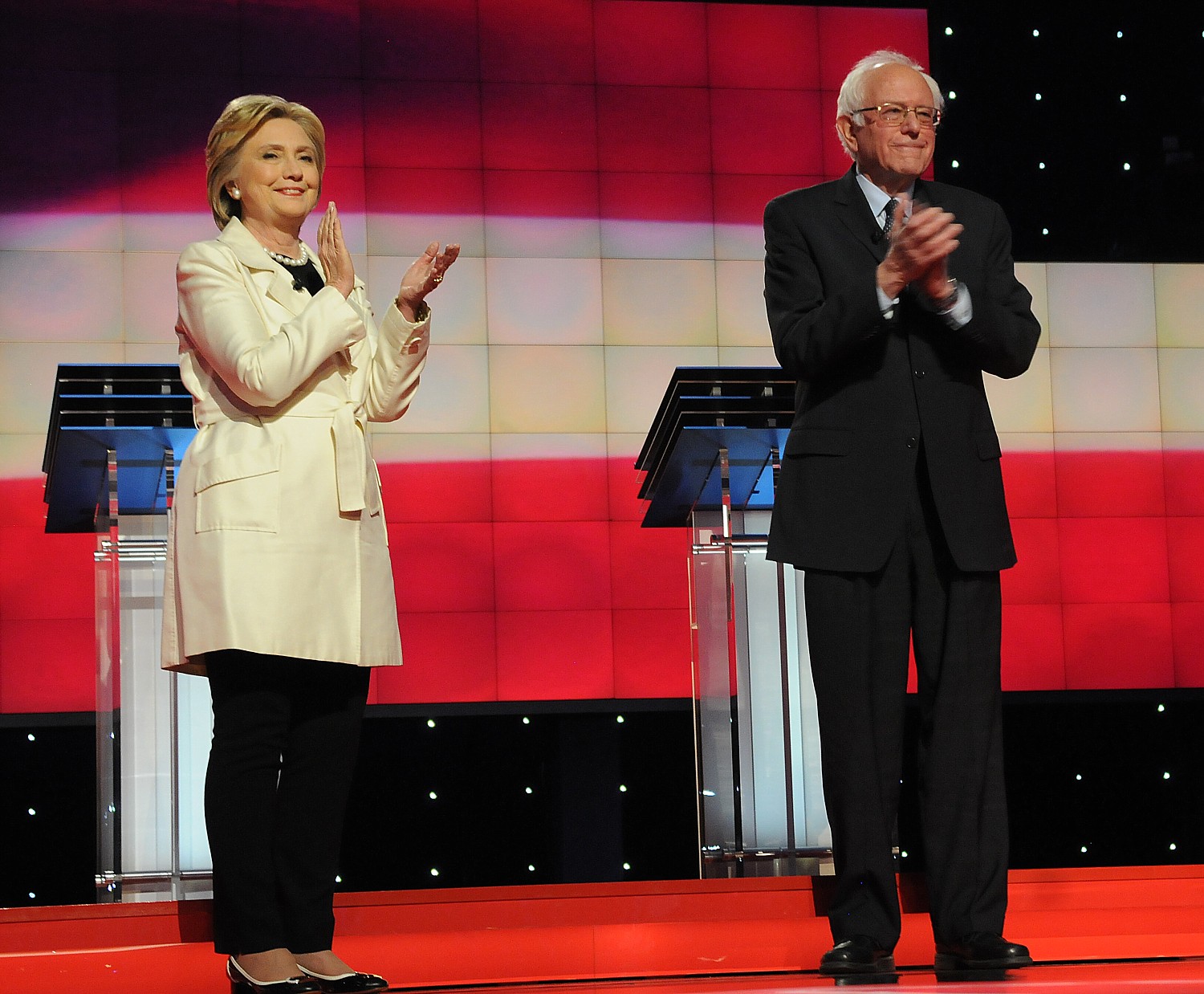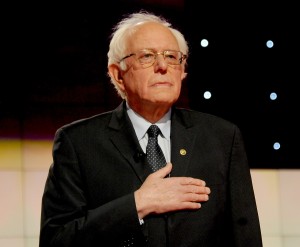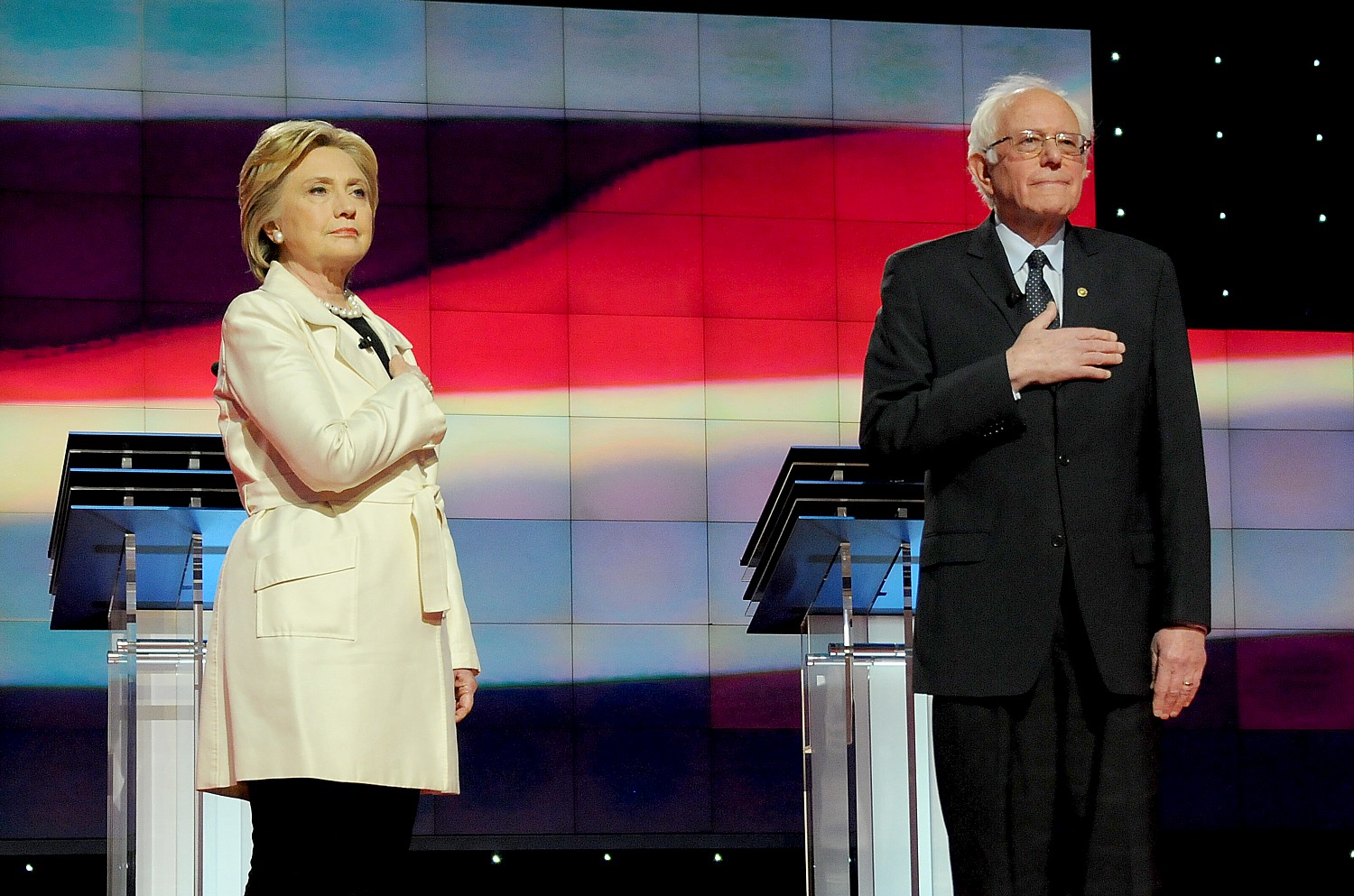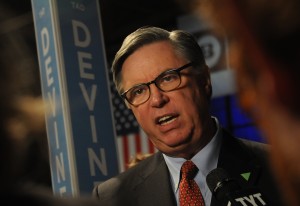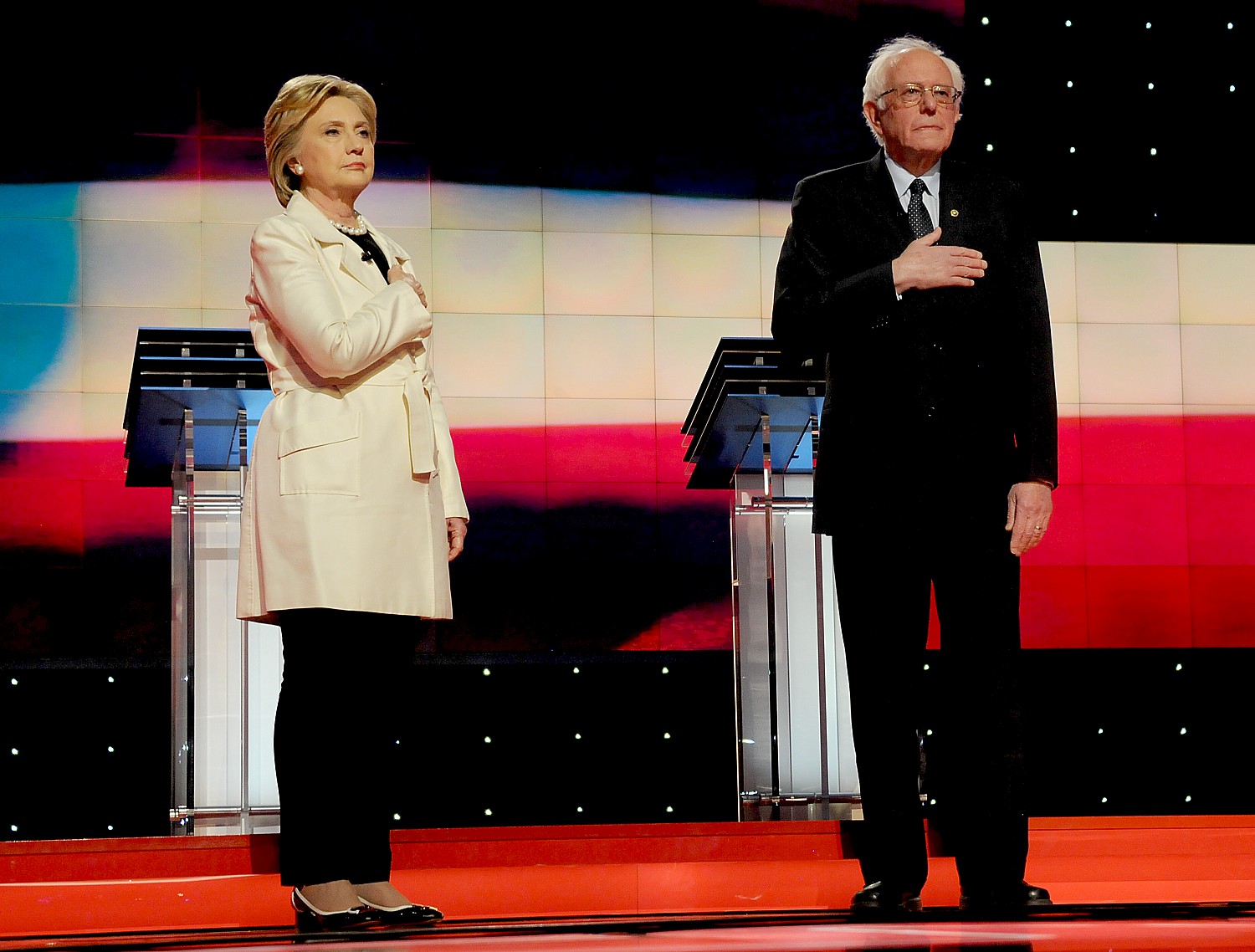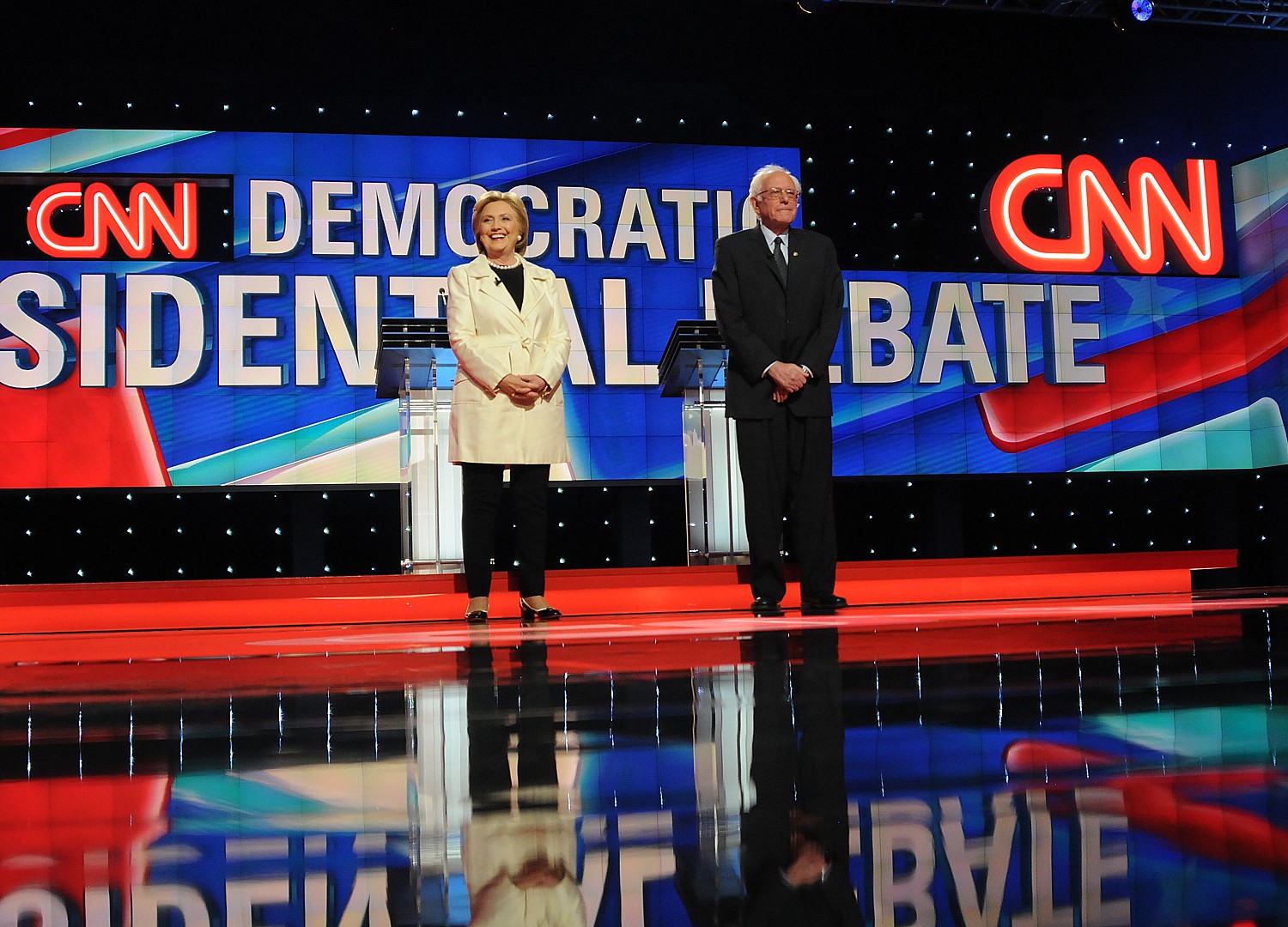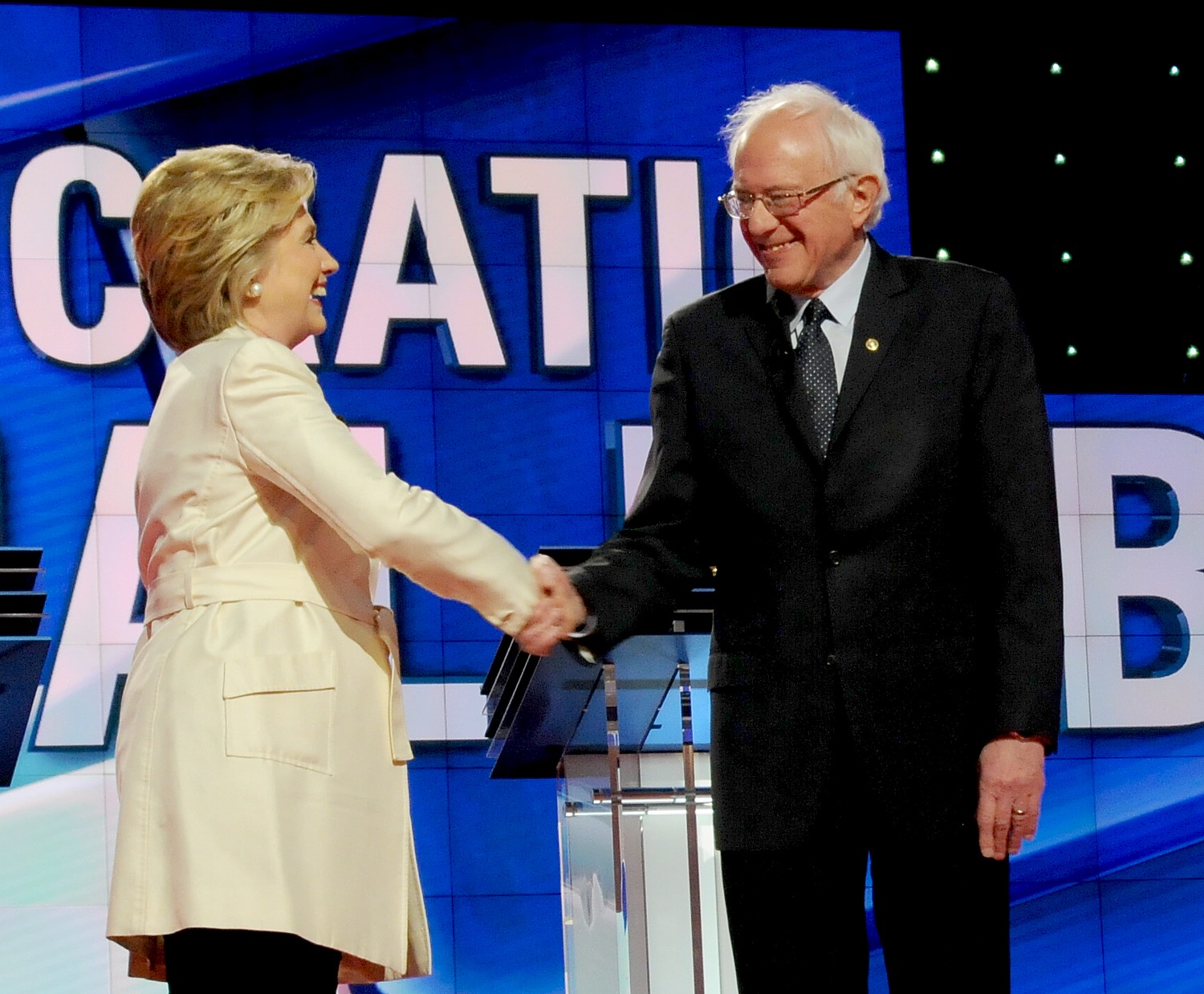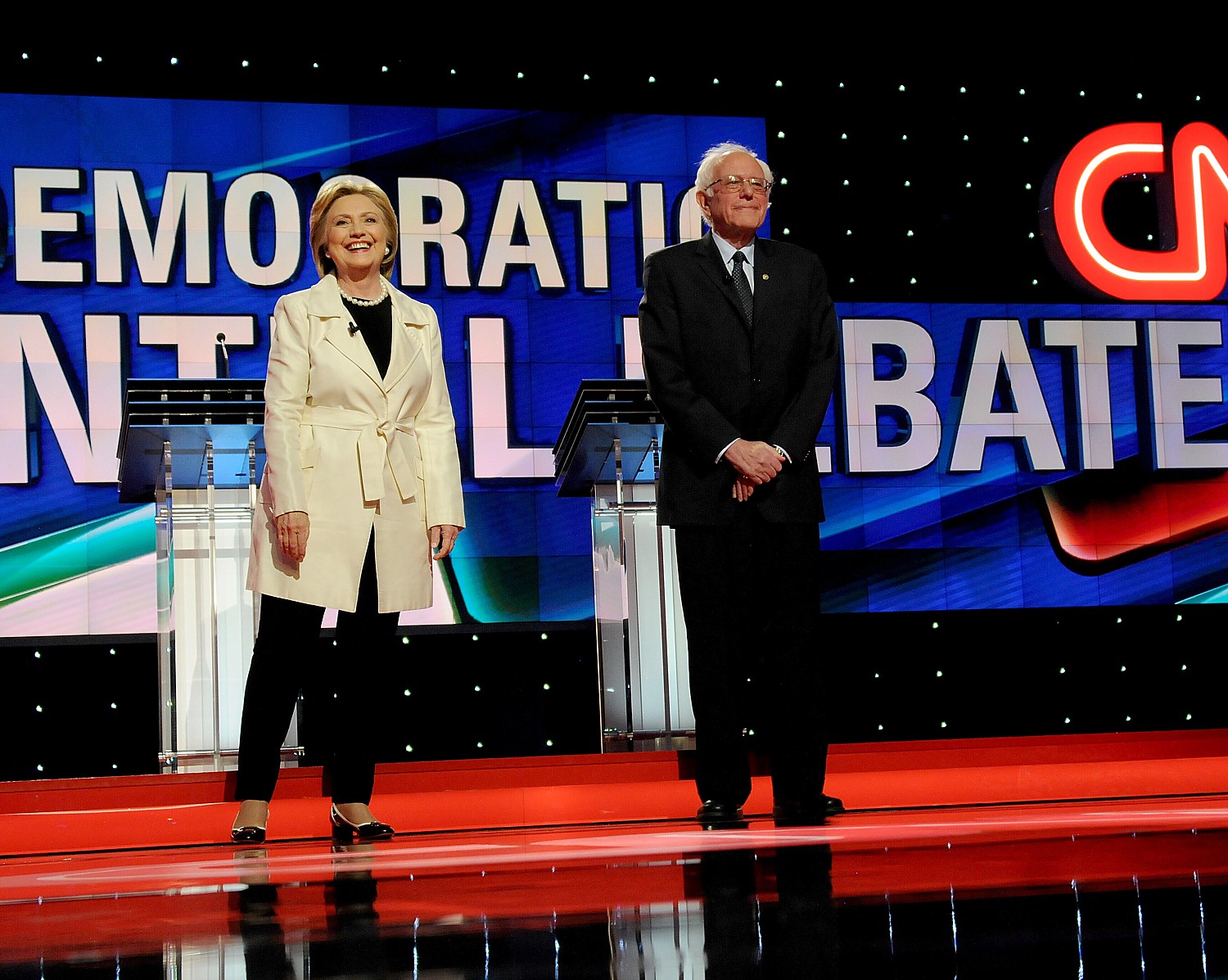
On the same day as Donald Trump, who during the primary boasted that he was not accepting outside funding so would be unbeholden to anyone, issued his first email soliciting campaign contributions, declaring it will be “the most successful introductory fundraising email in modern political history,” Hillary Clinton delivered a speech detailing why “Donald Trump Is Unfit To Manage The U.S. Economy” and then followed up with “Here’s Why, Literally” documenting Trump’s actual record.
At the same time, his sycophants – the so-called Angry Voters who are desperate to look outside the “professional political class” for a new Leader of the Free World – point to his business acumen, thinking that would somehow translate into growing the economy (which is now the strongest in the world, even at the slow pace of growth) and creating jobs (“I’m going to be the greatest jobs president God ever created,” he boasted.)
Indeed, Trump’s entire record has consisted of doing whatever it takes to benefit himself, no matter who he hurts, from wealthy stockholders, to working class people just trying to get by, to the stooges he bilked out of thousands of dollars thinking Trump University would be their ticket to riches. Trump’s entire campaign so far has been one long advertorial for his businesses – he holds his press conferences in his hotels where he actually takes reporters on tour, holds up Trump steaks (not actually Trump steaks, of course), Trump wine, Trump water. But while he singular campaign strategy has been to “brand” Clinton as “Crooked Hillary,” he has time and again been shown to be the crook, the conman. (The New York Times reports how he was mentored in his tough-guy style by none other than the attorney Roy Cohn, who worked for Sen. Joe McCarthy and later for gangsters.)
Following Clinton’s major economic policy address, the Hillary for America Campaign issued an annotated release, documenting her core proposition:
“If Donald Trump were to get behind the wheel of the American economy, he would very likely drive us off a cliff, and working families would bear the brunt of the impact of lost jobs, lost savings, and lost livelihoods.
“That’s the natural conclusion when you look at Trump’s policy proposals, his rash and reckless temperament, and his record in the private sector of doing harm to working families and small businesses. Need proof? Just this week former McCain economic policy adviser Mark Zandi released a report saying that if Trump got his way he would lead our economy into a ‘lengthy recession’ that would cost millions of jobs, reduce growth, stagnate middle class incomes, and explode the debt.”
“See for yourself how the lines from Hillary’s Clinton’s speech today compare with Trump’s record:”
A few weeks ago, I said his foreign policy proposals and reckless statements represent a danger to our national security.
Hillary Clinton: He is not just unprepared — he is temperamentally unfit to hold an office that requires knowledge, stability, and immense responsibility
The Briefing: Trump Literally Said All Those Things
Liberals and conservatives say Trump’s ideas would be disastrous. The Chamber of Commerce and labor unions… Mitt Romney and Elizabeth Warren… and economists on the left, right and center all agree: Trump would throw us back into recession.
Politico: Economists savage Trump’s economic agenda
U.S. Chamber of Commerce: Does a recession sound ‘great’ to you? Does 7 million lost jobs sound like ‘winning?’ No probably, not. And yet, that’s exactly where our country would be headed under Trump’s trade policies, according to an analysis released last week.
AFL-CIO President Richard Trumka: Trump’s policies would make life exponentially worse for those who count on a paycheck.
Mitt Romney: If Donald Trump’s plans were ever implemented, the country would sink into prolonged recession.
Elizabeth Warren: When the economy is in this kind of trouble, calling on Donald Trump for help is like if your house is on fire calling an arsonist to come help out.
One of John McCain’s former economic advisers actually calculated what would happen to our country if Trump gets his way. He described the results of a Trump Recession: we’d lose 3.5 million jobs, incomes would stagnate, debt would explode, and stock prices would plummet. And you know who’d be hit hardest: the people who had the hardest time getting back on their feet after the 2008 crisis.
Moody’s Analytics report by Mark Zandi, economic adviser to John McCain’s 2008 presidential campaign: By the end of [Trump’s] presidency, there are close to 3.5 million fewer jobs and the unemployment rate rises to as high as 7% … the average American household’s after-inflation income will stagnate, and stock prices and real house values will decline.
One of the leading firms that analyzes the top threats to the global economy – the Economist Intelligence Unit – comes out with a new list every month. It includes things like terrorism and the disintegration of Europe. And this month, #3 on the list is Donald Trump becoming president. Just think about that.
Politico: A Donald Trump presidency poses a top-10 risk event that could disrupt the world economy, lead to political chaos in the U.S. and heighten security risks for the United States, according to the Economist Intelligence Unit.
The Economist: July 2016 – Trump has a score of 16 on the same list as a Eurozone breakup (15) and the “rising threat of jihadi terrorism destabilises the global economy” (12)
Every day, we see how reckless and careless Trump is. He’s proud of it
TRUMP: I want to be unpredictable.
Donald Trump actually stood on a debate stage in November and said that wages are too high in this country. He should tell that to the mothers and fathers working two jobs to raise their kids.
The Week: Donald Trump kicks off GOP debate by saying American wages are ‘too high’
TRUMP: Our wages are too high
He said – quote – “having a low minimum wage is not a bad thing for this country” – at a time when millions working full-time are still living in poverty.
TRUMP: I think having a low minimum wage is not a bad thing for this country.
Center for Poverty Research of University of California, Davis: In 2013, 4.4 million people who usually work full-time were working poor
Back in 2006, before the financial crash, he said, quote, “I sort of hope” that the housing market crashes, because he’d make money off all of the foreclosures.
TRUMP: I sort of hope that happens because then people like me would go in and buy
Over the years, he said all kinds of things about women in the workforce. He called pregnant employees – quote – “an inconvenience.”
TRUMP: Well you know, pregnancy…it’s certainly an inconvneince for a business. And whether people want to say that or not, the fact is it is an inconvenience for a person that is running a business.
He says women will start making equal pay as soon as they do as good a job as men – as if we aren’t already.
QUESTION: So if you become president will a woman make the same as a man and will I get to choose what I do with my body?
TRUMP: You’re going to make the same if you do as good a job. And I happen to be pro-life. OK? I’m pro-life.
And he clearly doesn’t know how much of our growth over the last 40 years is thanks to women.
McKinsey & Company: Since women’s participation in the workforce took off, in the 1970s, their productivity has accounted for about a quarter of current GDP
And he wants to end Obamacare, but he has no credible plan to replace it or to help keep costs down. It wouldn’t be good for our economy if 20 million people lost their health insurance. And it would be devastating to all those families.
DonaldJTrump.com: On day one of the Trump Administration, we will ask Congress to immediately deliver a full repeal of Obamacare.
TRUMP: Repeal and replace with something terrific
Committee for a Responsible Federal Budget: Trump’s health care plan “would nearly double the number of uninsured, causing almost 21 million people to lose coverage.”
What would Trump do? He said he wants to wipe out the tough rules we put on big banks.
TRUMP: Dodd-Frank has made it impossible for bankers to function…[My plan] will be close to dismantling of Dodd-Frank.
He said they created – quote – “a very bad situation.”
TRUMP: The regulators under Dodd-Frank have made it virtually impossible for the banks to lend money to those people, which is a very bad situation to be in.
He also wants to repeal the new consumer watchdog that Senator Warren helped create to protect families from unfair and deceptive business practices. That new agency has already secured billions of dollars for people who’ve been ripped off. He wants to get rid of it.
TRUMP: On repealing Dodd-Frank, which created the Consumer Financial Protection Bureau: “absolutely”
Donald Trump would take us back to where we were before the crisis. He’d rig the economy for Wall Street again.
TRUMP: [My plan] will be close to dismantling of Dodd-Frank.
He calls himself the “King of Debt,”
TRUMP: I am the king of debt.
And his tax plan sure lives up to the name. According to the independent Tax Policy Center, it would increase the national debt by more than 30 trillion dollars over 20 years. That’s “trillion” with a “t.”
Tax Policy Center: Trump’s plan “would add $11.2 trillion to the national debt by 2026 and $34.1 trillion by 2036”
It’s much, much more than any nominee of either party has ever proposed.
Estimates of reducation of federal revenues under Republican candidates’ tax plans:
Trump Plan: $9.5 trillion
Romney Plan: $5 trillion
McCain Plan: $600 billion
Gene Sperling, Director of the National Economic Council and Assistant to the President for Economic Policy under Presidents Bill Clinton and Barack Obama: This is the most risky, restless and regressive tax proposal ever put forward by a major presidential candidate
Economists describe it with words like “simply dangerous” and “not even in the universe of the realistic.”
Glenn Hubbard, former chairman of the Council of Economic Advisers under President George W. Bush: Described Trump’s ideas on taxes and the budget as “unrealistic” and “simply dangerous”
Marc Goldwein, Center for a Responsible Federal Budget: “It’s not even in the universe of the realistic.”
And how would he pay for all this debt? He said, quote, “I would borrow, knowing if the economy crashed, you could make a deal. It’s like, you know, you make a deal before you go into a poker game.”
TRUMP: I would borrow knowing that if the economy crashed you could make a deal. And if the economy was good it was good so therefore you can’t lose. It’s like, you know, you make a deal before you go into a poker game, and your odds are so much better.
The full faith and credit of the United States is something we can just gamble away. That would cause an economic catastrophe worse than anything we experienced in 2008.
Michael Strain, economics fellow at American Enterprise Institute: When asked about Trump’s suggestion to default on the debt: “There are no merits to it. The extent to which U.S. Treasurys are kind of the foundation on which the global financial system is built is really hard to overstate.”
Austan Goolsbee, former chairman of the Council of Economic Advisers under President Obama: Called Donald Trump’s idea of not fully repaying investors in U.S. Treasuries “borderline insane”
You don’t have to take it from me. Ronald Reagan said, “We have a well-earned reputation for reliability and credibility – two things that set us apart from much of the world.”
President Ronald Reagan: The United States has a special responsibility to itself and the world to meet its obligations. It means we have a well-earned reputation for reliability and credibility—two things that set us apart from much of the world.
Maybe Donald feels differently because he made a fortune filing bankruptcies and stiffing his creditors.
New York Times: How Donald Trump Bankrupted His Atlantic City Casinos, but Still Earned Millions
Boston Globe: The Atlantic City savior who came up snake eyes
Trump also says, we can just print more money to pay our debt down
TRUMP: You never have to default because you print the money
The American dollar is the safest currency on the planet. Why would he want to mess with that?
PolitiFact: The current system has secured the United States’ position as the world’s safest harbor for global money
Finally, the Trump campaign said that, if worst came to worst, we could just sell off America’s assets.
Trump senior campaign advisor Barry Bennett: The United States government owns more real estate than anybody else, more land than anybody else, more energy than anybody else. We can get rid of government buildings we’re not using, we can extract the energy from government lands, we can do all kinds of things to extract value from the assets that we hold.
First, really? And second, even if we sold all our aircraft carriers and the Statue of Liberty – even if he let some billionaire turn Yosemite into a private country club – we still wouldn’t even get close. That’s how much debt he’d run up.
Government Accountability Office: The federal government’s reported assets totaled about $3.2 trillion as of September 30, 2015.
Washington Post: Trump’s nonsensical claim he can eliminate $19 trillion in debt in eight years
Maybe this is what he means when he says “I love playing” with debt.
TRUMP: I do love debt. I love debt. I love playing with it.
He’d give millionaires a three-trillion-dollar tax cut. Corporations would get two trillion dollars. He’s giving more away to the 120,000 richest American families than he would to 120 million hard-working people.
Center on Budget and Policy Priorities: Millionaires Would Gain Trillions Under Trump and Cruz Tax Plans
Tax Policy Center: An Analysis of Donald Trump’s Tax Plan
The Briefing: The Trump Tax Plan – By the Billionaire, For the Billionaires
Emmanuel Saez of the University of California, Berkeley and Garbiel Zucman of the London School of Economics: Wealth Inequality In The United States Since 1913
Now, before releasing his plan, Trump said, “Hedge fund guys are getting away with murder.” And, “They’ll pay more.”
TRUMP: Hedge fund guys are getting away with murder.
TRUMP: The hedge fund guys won’t like me as much as they like me right now. I know them all, but they’ll pay more.
Then his plan came out. And it actually makes the current loophole even worse. It gives hedge-fund managers a special tax rate that’s lower than what many middle-class families pay. I had to look twice because I didn’t believe it. Under Donald Trump’s plan, these Wall Street millionaires will pay a lower tax rate than many working people.
Josh Barro, New York Times: The usual fee structure for a hedge fund is called “2-and-20”: a flat management fee (often 2 percent) on all assets, plus a performance fee (often 20 percent) on profits above a set threshold. Currently, the management fee is taxed at ordinary rates up to 39.6 percent, while the performance fee enjoys a preferential rate of 23.8 percent. Under Mr. Trump’s plan, all this income would be taxed at a maximum of 25 percent. The performance fee would be subject to a small tax increase, but that effect would be dwarfed by the large tax cut on ordinary management fees
Tax Policy Center: The highest-income 1.0 percent would get an average tax cut of over $275,000 (17.5 percent of after-tax income), and the top 0.1 percent would get an average tax cut worth over $1.3 million, nearly 19 percent of after-tax income. By contrast, the lowest-income households would receive an average tax cut of $128, or 1 percent of after-tax income. Middle-income households would receive an average tax cut of about $2,700, or about 5 percent of after-tax income.
And of course, Donald himself would get a huge tax cut from his own plan. But we don’t know exactly how much – because he won’t release his tax returns.
TRUMP: There’s nothing to learn from them
TRUMP: It’s none of your business, you’ll see it when I release. But I fight very hard to pay as little tax as possible
Every major presidential candidate in the last four decades has shown the American people their taxes.
Washington Post: Trump “would be the first major-party nominee in 40 years to not release his returns.”
Donald actully told Mitt Romney to do it.
TRUMP: On Romney’s tax returns: “I think it probably be better off just to release them now”
And he said that if he ever ran for President, he’d release his.
TRUMP: If I run, you’ll see what a great job, because I’ll do a full disclosure of finances. … Maybe I’m going to do the tax returns when Obama does his birth certificate… I’d love to give my tax returns
TRUMP: Said he would “certainly” release his tax returns, saying he had “no objection” to the idea
What’s he afraid of? That we’ll learn he hasn’t paid taxes on his huge income? We know that happened for at least a few years – he paid nothing, or close to it.
Politico: Trump appears to have paid no taxes for two years in early 1990s
Daily Beast: New Evidence Donald Trump Didn’t Pay Taxes
PolitiFact: Public records show that Trump did not pay federal income taxes in two years — 1978 and 1979
Or maybe he isn’t as rich as he claims…
Fortune: Why Donald Trump’s Tax Returns May Prove He’s Not That Rich
or hasn’t given away as much as he brags about.
Washington Post: Missing from Trump’s list of charitable giving: His own personal cash
The Republican primary featured the Trump immigration plan: round up and deport more than 11 million people – almost all of whom are employed or are children going to school – then build a wall across our border and force Mexico to pay for it.
TRUMP: We have many illegals in the country, and we have to get them out
CNN: Trump has called for deporting all of the undocumented immigrants in the United States
TRUMP: I will build a great wall — and nobody builds walls better than me, believe me —and I’ll build them very inexpensively. I will build a great, great wall on our southern border, and I will make Mexico pay for that wall. Mark my words.
This policy is both un-American and very bad economics. Kicking out 11 million immigrants would cost hundreds of billions of dollars, and it would shrink our economy significantly. Some economists argue that just this policy alone would send us into a Trump Recession.
American Action Forum: The federal government would have to spend roughly $400 billion to $600 billion to address the 11.2 million undocumented immigrants and prevent future unlawful entry into the United States.
Mark Zandi, economic adviser to John McCain’s 2008 presidential campaign: If Trump’s policies were enacted it would be some form of disaster for the economy. If you force 11 million undocumented immigrants to leave in a year, you would be looking at a depression.
Interestingly, Trump’s own products are made in a lot of countries that aren’t named America. Trump ties are made in China; Trump suits, in Mexico;
WALLACE: Your Trump Collection clothing line, some of it is made in Mexico –
TRUMP: It’s true.
WALLACE: — and China.
TRUMP: That’s true.
CNN: Donald Trump suits and ties are made in China
Trump furniture, in Turkey;
Trump Home Press Release: The entire production process, from the moment the raw wood is cut until the product is finished or upholstered, occurs in Dorya’s Izmir, Turkey.
Trump picture frames in India;
Donald Trump Park Avenue Collection picture frame 4 x 6: Origin: India
and Trump barware in Slovenia.
Trump Home by Rogaska: We preserve the art of almost 350 years of making crystal ware in Slovenia
I’d love him to explain how all that fits with his talk about America First.
TRUMP: America First will be the major and overriding theme of my administration.
TRUMP: #AmericaFirst
TRUMP: #AmericaFirst
On the other hand, Donald Trump never misses a chance to say that Americans are losers and the rest of the world is laughing at us.
CNN: Donald Trump thinks pretty much everyone is a loser
Washington Post: Losers: A list by Donald Trump
TRUMP: The world is laughing at us.
Just the other day, he told a crowd that America is – quote – “not going to survive.”
TRUMP: It’s amazing that our country can continue to survive, but you know? Eventually it’s not going to survive. Just so you understand. Eventually it’s not.
The King of Debt has no real plan for making college debt free or addressing the student debt crisis that has people in their 40s and 50s still paying off loans.
Trump campaign Co-Chair Sam Clovis: When asked whether Trump would have a plan to ensure debt-free college: “Unequivocally no…It’s absurd on the surface.”
He has no credible plan for rebuilding our infrastructure, apart from his wall.
“Positions” listed on Donald Trump’s website:
- Pay for the Wall
- Healthcare Reform
- S.-China Trade Reform
- Veterans Administration Reforms
- Tax Reform
- Second Amendment Rights
- Immigration Reform
No ideas for how to strengthen Medicare and expand Social Security – in fact, his tax plan would endanger them.
Center on Budget and Policy Priorities: Under [Trump’s] plan, balancing the budget in 2026 would require cutting all government programs — including Social Security, Medicare and defense — by about two-fifths if all programs were cut by the same percentage. Balancing the budget without cutting Social Security, Medicare, and defense would require eliminating essentially the rest of government under both plans.
No real strategy for creating jobs, just a string of empty promises.
TRUMP: We’re going to save that coal industry, believe me.
Jason Bordoff, director of Columbia University’s Center on Global Energy Policy: The U.S. coal industry has been in structural decline for decades, recently driven by things like weak global demand and cheap natural gas. And eliminating environmental rules protecting air and water is not going to bring those jobs back.
Maybe we shouldn’t expect better from someone whose most famous words are, “You’re fired.”
TRUMP: You’re fired
He has no clean energy plan, even though that’s where many of the jobs of the future will come from and it’s the key to a safer planet. He just says that climate change is a hoax invented by the Chinese.
TRUMP: The concept of global warming was created by and for the Chinese in order to make U.S. manufacturing non-competitive
TRUMP: Obama’s talking about all of this with the global warming and … a lot of it’s a hoax. It’s a hoax. I mean, it’s a money-making industry, okay? It’s a hoax, a lot of it.
And he has no plan for helping urban and rural communities facing entrenched poverty and neglect.
“Positions” listed on Donald Trump’s website:
- Pay for the Wall
- Healthcare Reform
- S.-China Trade Reform
- Veterans Administration Reforms
- Tax Reform
- Second Amendment Rights
- Immigration Reform
Donald Trump says he’s qualified to be president because of his business record.
TRUMP: I’ve been a world-class businessman…That’s the thinking that our country needs
A few days ago, he said, quote, “I’m going to do for the country what I did for my business.”
TRUMP: I’m going to do for the country what I did for my business.
He’s written a lot of books about business – but they all seem to end at Chapter 11.
PolitiFact: Trump’s four bankruptcies were Chapter 11 reorganizations
Over the years, he intentionally ran up huge amounts of debt on his companies and then defaulted. He bankrupted those companies – not once, not twice, but four times.
New York Times: His casino companies made four trips to bankruptcy court, each time persuading bondholders to accept less money rather than be wiped out.
Hundreds of people lost their jobs.
Chris Wallace: In that case alone lenders to your company lost over $1 billion and more than 1,100 people were laid off.
Shareholders were wiped out. Lenders lost money.
Forbes: In the case of his casinos, Trump has screwed his shareholders three consecutive times by wiping out their investment.
Contractors – many of them small businesses – took heavy losses. Many went bust. But Donald Trump always came out fine.
USA Today: Trump [offered] as little as 30 cents on the dollar to some of the contractors
New York Times: Triad Building Specialties nearly collapsed when Mr. Trump took the Taj into bankruptcy.
Here’s what he said about one of those bankruptcies: “I figured it was the bank’s problem, not mine. What the hell did I care?”
TRUMP: I figured it was the bank’s problem, not mind. What the hell did I care?
He also says, “I play” with bankruptcy.
TRUMP: I play with the bankruptcy.
Just look at what he did in Atlantic City. He put his name on buildings – his favorite thing to do. He convinced other people that his properties were a great investment, so they would go in with him. But he arranged it so he got paid no matter how his companies performed. So when his casino and hotel went bankrupt because of how badly he mismanaged them, he still walked away with millions. Everyone else paid the price. Today, his properties are sold, shuttered or falling apart. So are a lot of people’s lives.
New York Times: How Donald Trump Bankrupted His Atlantic City Casinos, but Still Earned Millions
USA Today: Hundreds allege Donald Trump doesn’t pay his bills
And here’s what he says about that: “Atlantic City was a very good cash cow for me for a long time.”
TRUMP: Atlantic City was a very good cash cow for me for a long time.
Those promises you’re hearing from him at his campaign rallies? They’re the same promises he made to his customers at Trump University. Now they’re suing him for fraud.
CNN: Donald Trump still battling lawsuits from defunct Trump University
Fortune: How Bad Are the Charges Against Trump University? Really Bad
The New Yorker: Trump University: It’s Worse Than You Think
The Daily Beast: Maddings, an ex-marine now 32, who told The Daily Beast that he racked up around $45,000 in credit card debt to buy Trump University seminars and products. … “It was a con. I’m 25-years-old, barely making $3,000 a month and they told me to increase my credit limit. I just maxed out three credit cards and I’m supposed to be able to qualify for loans to buy real estate? Those stupid principles have led me to borrow $700,000 of other people’s money and lose it all. I’m still paying off some of that debt to this day.”
He’s been involved in more than 3,500 lawsuits in the past 30 years.
USA Today: Trump’s 3,500 lawsuits unprecedented for a presidential nominee
A large number were filed by ordinary Americans and small businesses that did work for Trump and never got paid – painters, waiters, plumbers – people who needed the money, and didn’t get it – not because he couldn’t pay them, but because he could stiff them.
USA Today: At least 60 lawsuits, along with hundreds of liens, judgments, and other government filings reviewed by the USA TODAY NETWORK, document people who have accused Trump and his businesses of failing to pay them for their work. Among them: a dishwasher in Florida. A glass company in New Jersey. A carpet company. A plumber. Painters. Forty-eight waiters.
USA Today: Juan Carlos Enriquez, owner of The Paint Spot, in South Florida, has been waiting more than two years to get paid for his work at the Doral. The Paint Spot first filed a lien against Trump’s course, then filed a lawsuit asking a Florida judge to intervene.
Sometimes he offered them 30 cents on the dollar for projects they had already completed.
USA Today: Trump [offered] as little as 30 cents on the dollar to some of the contractors
Hundreds of liens have been filed against him by contractors, going back decades. They all tell a similar story: I worked for him, I did my job, he wouldn’t pay me what he owed.
USA Today: Hundreds allege Donald Trump doesn’t pay his bills
He says, he’s a businessman, and this is what businessmen do.
TRUMP: Every major business leader, has used the – I never went bank bankrupt, by the way, as you know, everybody knows. But – hundreds of companies, hundreds of deals, I used the law four times and made a tremendous thing. I’m in business. I did a very good job.
Well, CNN pointed out that no major company has filed Chapter 11 more often in the last 30 years than Trump’s casinos.
CNN: No major U.S. company has filed for Chapter 11 more than Trump’s casino empire in the last 30 years
Now imagine Donald Trump sitting in the Oval Office the next time America faces a crisis. Imagine him being in charge when your jobs and savings are at stake. Is this who you want leading us in an emergency?
TRUMP: Happy #CincoDeMayo! The best taco bowls are made in Trump Tower Grill. I love Hispanics!
_________________________________
© 2016 News & Photo Features Syndicate, a division of Workstyles, Inc. All rights reserved. For editorial feature and photo information, go towww.news-photos-features.com, email krubin723@aol.com. ‘Like’ us on facebook.com/NewsPhotoFeatures, Tweet @KarenBRubin

